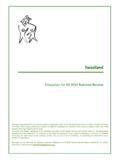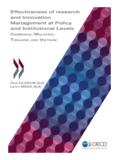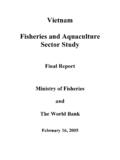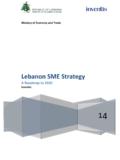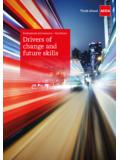Transcription of Search and seizure of learners in schools in a ...
1 114 Search and seizure of learners in schools in a constitutional democracy: A comparative analysis between South Africa and the United StatesRika JoubertBSc THOD FED MEd PhDAssociate Professor, Department of education Management and Policy Studies, University of PretoriaJennifer SughrueBA MA PhDAssociate Professor, Department of Educational Foundations and Leadership, Old Dominion University, Norfolk, VirginiaDavid M AlexanderBS MEd EdDProfessor, Department of Educational Leadership and Policy Studies, Virginia Polytechnic Institute and State UniversityOPSOMMINGD eursoeking en Beslaglegging van Leerders in Skole in n Grondwetlike Demokrasie: n Vergelykende Ontleding van Suid-Afrika en die Verenigde StateIn hierdie artikel word die regsraamwerk wat die effektiewe bestuur vandeursoeking en beslagleggingsaksies rig, gebruik om die reg van leerders opprivaatheid in gevalle van onredelike deursoeking en beslaglegging vanleerders se besittings in Suid-Afrika te vergelyk met die Verenigde Suid-Afrika mag n skoolhoof of die persoon aan wie hierdie gesaggedelegeer is, n groep leerders of die besittings van n groep leerders lukraakdeursoek vir enige gevaarlike voorwerp of onwettige dwelmmiddel.
2 Mits daar n billike en redelike vermoede die Suid-Afrikaanse reg word die begrippe deursoeking en beslagleggingnie duidelik gedefinieer nie. Hoewel daar riglyne gepubliseer is wat diebestuur en voorkoming van dwelmmisbruik in skole rig, word deursoekingvan leerders tans oorgelaat aan eie oordeel wat van een geval tot dievolgende gebruik word. Deursoeking noodsaak n mate van skending van diereg op privaatheid van leerders of hulle is n belangrike verskil tussen Suid-Afrika en die Verenigde State watbetref die vryheid om n individu te mag deursoek. In die Verenigde Statemag n skoolhoof nie n groep leerders deursoek as daar n redelikevermoede bestaan dat een van hulle n moontlike oortreding begaan het daar n redelike vermoede bestaan dat n individuele leerder nmoontlike oortreding begaan het, mag slegs daardie leerder deursoek word.
3 In die artikel word onderwysers gemaan dat elke situasie waartydensdeursoeking of beslaglegging betrokke is van mekaar verskil en dat npresedent moeilik gevolg kan word. Nuwe hofuitspake en verskillende Search and seizure of learners in schools in a constitutional democracy 115omstandighede noodsaak verskillende optredes. Die doel met deursoeking eninbeslaglegging van leerders se besittings moet verband hou met diehandhawing van goeie orde en dissipline by n skool en nie met dietoepassing van strafreg enforcement and education authorities as well as substance abuseresearchers are in agreement that the nature and extent of illicit drugtrafficking, consumption and associated problems have all increaseddramatically since the 1990s.
4 During this period South Africa hasexperienced major political and social transformation and the forging oftrade and other links with some African countries and the rest of theworld. The current increase in drug abuse is a disturbing phenomenonwhich causes a reprehensible escalation of insecurity at some The issue of substance abuse in South African schools is far moreurgent than is generally realised. Society in general ignores theaccompanying dangers of addiction, aggression, and violence whichthreaten the very existence of the secure school environment. The SouthAfrican Government, in recognition of the serious threat posed bysubstance abuse in schools , amended the South African schools Act toinclude provision for random Search and seizure exercises and drugtesting in aim of this article is to investigate the right to privacy of thelearners against unreasonable Search and seizure exercises by exploringthe legal framework that guides effective management of both searchand seizure and of substance abuse in public schools in South Africa incomparison with the United States.
5 This article consists of two sections. The first section examines recentlegislative action that focuses specifically on deterring substance abuse inschools in South Africa. It commences with a discussion of the NationalPolicy on Drug Abuse in schools that was published in 2002, followed bythe legislative actions resulting from this first attempt of the NationalDepartment of education to manage the problem in South Africanschools. It also attempts to strike a legal balance between the learner sright to privacy and the security of the greater school community. Thesecond section deals with the practical implementation of the legalprovisions on Search and seizure exercises and drug testing in schools inthe United States.
6 It briefly addresses perspectives from the United Stateson Search and seizure exercises to provide guidance on theirmanagement in South African schools . 1 National Department of education The National policy on the management ofdrug abuse by learners in public and independent schools and further educationand training institutions (2002) par 8A South African schools Act 84 of 1996 (SASA) provides for randomsearch and seizure and drug testing in 2013 De Jure2 Search and seizure Exercises in South African Schools2 1 IntroductionThe ministry of education in South Africa considers a safe and disciplinedlearning environment one of the critical elements to the successfuldelivery of quality education and recognises the role played by substanceabuse in undermining Evidence indicates that school communitiesare particularly vulnerable and substance abuse among learners is on theincrease in both rural and urban, primary and secondary 2 2 The learners Right to PrivacyThe Constitution of the Republic of South Africa.
7 5 1996 provides for theright to privacy for everyone which includes the right not to have:(a)their person or home searched;(b)their property searched;(c)their possessions seized; or(d)the privacy of their communication right to privacy affords a greater intensity of protection to personalactivities within the sanctum of the home. Where individuals engage incommunal activities, such as education , the intensity of this protectiondiminishes. In Mistry v Interim Medical Council of South Africa6 theConstitutional Court stressed that the more public an undertaking, themore attenuated would any corresponding claim to privacy be in respectof an , the right to privacy, like all rights, is not absolute.
8 Insome instances, it is reasonable and justifiable for society to intrude intothe personal and private realm of the If the school, therefore,wishes to Search learners periodically in order to prevent dangerousweapons or contraband being brought onto the school premises, it mustdo so in terms of legislation. 2 3 Searches in South African SchoolsThe South African schools Act,8 (SASA) declares9 all schools as drug SASA clearly states that no person may bring a dangerous object3 Department of education par Research Council of South Africa The Second South African NationalYouth Risk Behaviour Survey (2008) 14 Constitution. 6 Mistry v Interim Medical and Dental Council of South Africa 1998 4 SA 1127(CC).
9 7S 36 of 1996 s 8A S 8A SASA. Search and seizure of learners in schools in a constitutional democracy 117or illegal drug onto school premises or have such object or drug in his orher possession on school premises or during any school Theprincipal or his or her delegate may, at random, Search any group oflearners, or the property of a group of learners , for any dangerous objector illegal drug, if a fair and reasonable suspicion has By its very nature, searches and drug testing are aninvasion of privacy and may infringe the constitutional and personalrights of learners . It should therefore not be the first point of intervention.
10 In SouthAfrica, there is no empirical evidence or justification yet for routinerandom testing of learners , to reduce drug In terms of SASA,drug testing may only be done where there is reasonable suspicion thata learner is using Testing must be implemented as part of astructured intervention or relapse prevention programme in anenvironment that is committed to safeguarding personal rights relatingto privacy, dignity, and bodily integrity according to school policy,medical/treatment procedures, and ethical guidelines. Although, at first glance, it seems to be a fact that Search and seizureexercises and drug testing of learners would entail an unlawfulinfringement of their right to privacy, section 7(3) of the Constitutionreminds us that this right is subject to the limitations referred to insection 36, generally known as the limitation 36(1) stipulates that the rights in Chapter 2 of the Constitutionare not absolute, but may be limited in certain circumstances.










